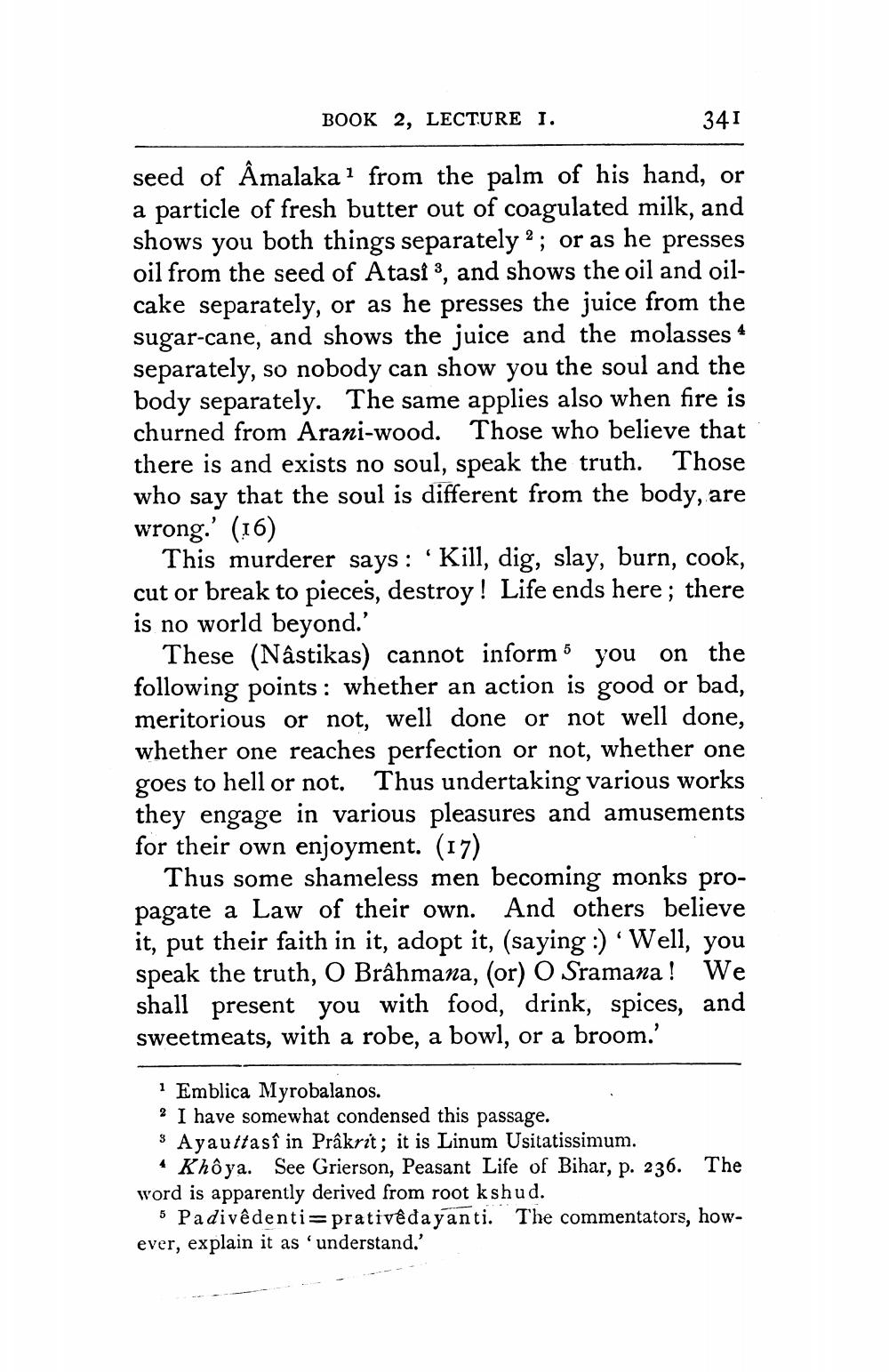________________
BOOK 2, LECTURE I.
341
seed of Âmalaka1 from the palm of his hand, or a particle of fresh butter out of coagulated milk, and shows you both things separately 2; or as he presses oil from the seed of Atasi 3, and shows the oil and oilcake separately, or as he presses the juice from the sugar-cane, and shows the juice and the molasses * separately, so nobody can show you the soul and the body separately. The same applies also when fire is churned from Arani-wood. Those who believe that there is and exists no soul, speak the truth. Those who say that the soul is different from the body, are wrong.' (16)
This murderer says: 'Kill, dig, slay, burn, cook, cut or break to pieces, destroy! Life ends here; there is no world beyond.'
These (Nâstikas) cannot inform 5 you on the following points: whether an action is good or bad, meritorious or not, well done or not well done, whether one reaches perfection or not, whether one goes to hell or not. Thus undertaking various works they engage in various pleasures and amusements for their own enjoyment. (17)
Thus some shameless men becoming monks propagate a Law of their own. And others believe it, put their faith in it, adopt it, (saying :) 'Well, you speak the truth, O Brâhmana, (or) O Sramana! We shall present you with food, drink, spices, and sweetmeats, with a robe, a bowl, or a broom.'
1 Emblica Myrobalanos.
2 I have somewhat condensed this passage.
3 Ayauttasî in Prâkrit; it is Linum Usitatissimum.
4
Khôya. See Grierson, Peasant Life of Bihar, p. 236. The word is apparently derived from root kshud.
5 Padivêdenti prativêdayanti. The commentators, however, explain it as 'understand.'




